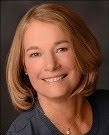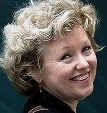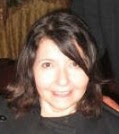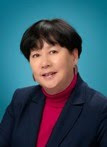by LAUREL CORONA
As past readers know, I have been in a transition period in my personal life, which has extended quite naturally into my life as a writer. I began my last SDWW post like this:
“I can’t write about writing or the writing life today, because I am not doing any of the former, and as to the latter, I don’t have one.”
I still haven’t opened the file on either my novel being marketed presently, or the one I had just finished drafting when my husband, Jim, was showing signs that the end of his life was near. Now, they both seem like a dream from a different world, and it’s fortunate that neither demands my attention.
I suppose once you’re published you are permanently an author, but I don’t want to picture myself in the future telling someone that I used to write. I do self-identify as an author, and it has been a bit concerning to me how my interest in writing vanished overnight.
I don’t kick myself about it. I just have questions about that aspect of my life. Of course I do. I have questions about every aspect of my life as I refashion myself in my new reality.
Writers constantly engage in self-questioning even when they are at their most productive, and I think that this ongoing questioning may play a big role in keeping us motivated.
I don’t mean the big question that plagues novice writers: Can I do this? Or, to give it a little more bite, can I do this without embarrassing myself? Can I do this well enough to get published? How about to make a living at it? Writers have many of those kinds of questions starting out.
I think I speak for most of my author friends when I say that we don’t go there anymore. Though the blank page, or computer screen, is just as formidable an obstacle the tenth time as the first, the question of whether we will be able to come up with a finished, marketable product has already been answered in the affirmative, in some cases many times over.
I had an artist friend in graduate school who painted the most exquisite watercolor landscapes. She told me that painters look at a new work as a problem they want to solve. Rembrandt might have wanted to work on how shadows fell across a nose; Ingres might have wanted to work on that subtle area just under the eyes, which I have been told is one of the most difficult challenges of portrait painting.
As writers gain experience, we move from the question of whether we can do it in a general sense, to whether we can meet more specific challenges. I knew my time to write Young Adult library books was at an end not because I didn’t like learning the things I wrote about, or couldn’t use the money, but because there were no questions left about me as a writer in that kind of work.
Historical fiction opened up a phalanx of new worries. Can I write vivid descriptions of places? Can I differentiate characters by mannerisms and speech? Can I sustain a plot over 350-400 pages? Can I write a death scene? A sex scene? A battle scene? Can I write from the point of view of a child? Can I condense time effectively? Can I foreshadow?
Those questions, and others, are answered now. As a result, the challenge now lies in part in keeping myself engaged about continuing to write novels now that I know I can do it.
So as I relax into my new life, I can’t predict where my writing will go. I can’t say, though, as I did in my last post that I don’t have a writing life. I do. It just hasn’t quite shown me yet what it will be.












0 comments:
Post a Comment